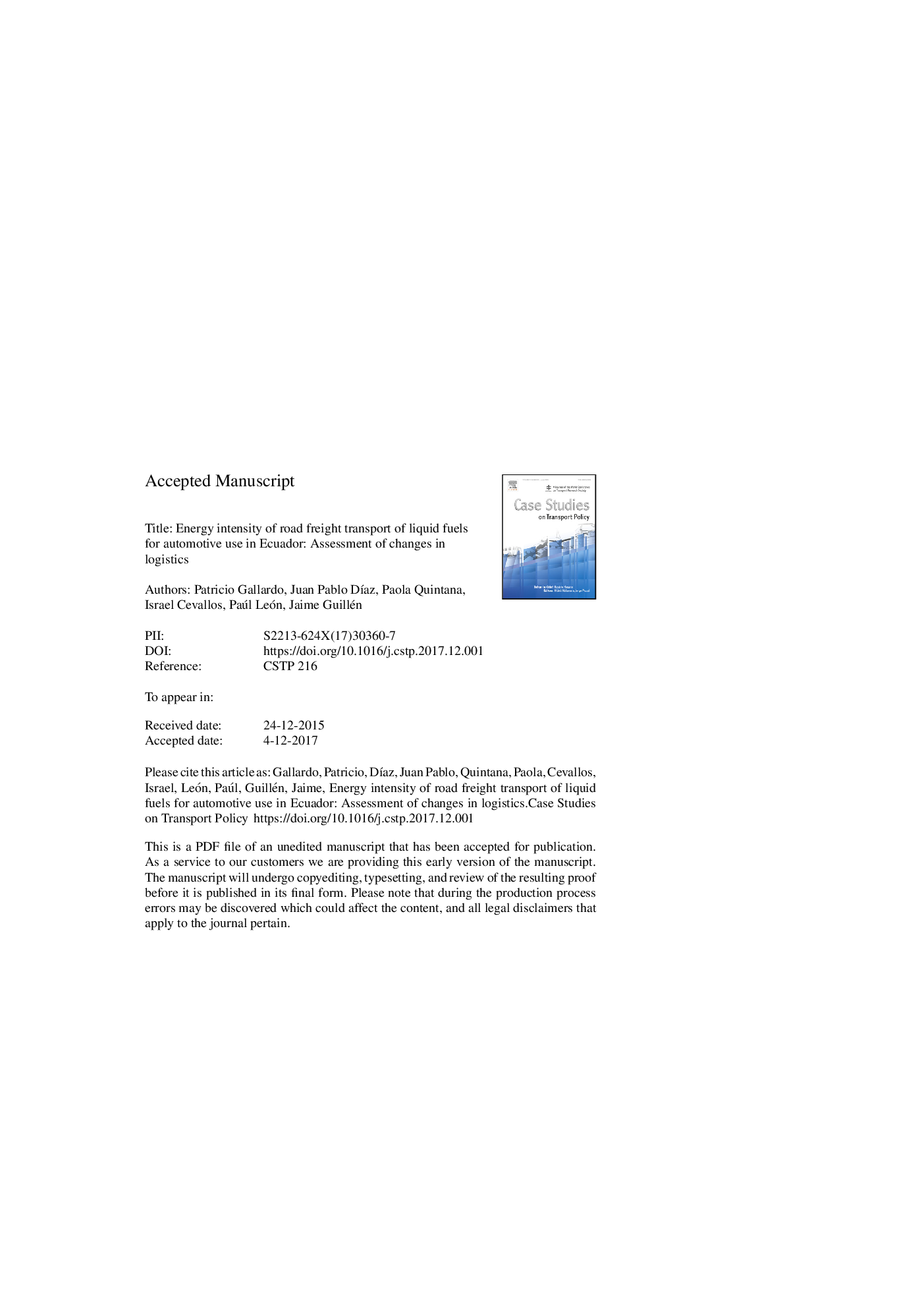| Article ID | Journal | Published Year | Pages | File Type |
|---|---|---|---|---|
| 6702137 | Case Studies on Transport Policy | 2018 | 21 Pages |
Abstract
In Ecuador, liquid fuels are transported through a system of oil pipelines and tank wagons. The first part of the article proposes a novel methodology for the calculation of the energy intensity associated with the transportation of liquid fuels (gasoline and diesel) via road freight transport (tankers). The computation is based on the fuel economy of the vehicles from the fleet, the distance travelled, the volumes of fuel dispatched from the terminals and the loads assigned to each type of vehicle. The assessment is derived upon data collected from the main terminals located in Quito (Beaterio) and Guayaquil (Pascuales). The second part of the article comprises an estimate of the potential savings that could be achieved through the implementation of three recommendations including: a redistribution of the loads assigned to each vehicle category, a reduction in fuel economy due to eco driving initiatives and the introduction of a new terminal. This paper aims to provide a better understanding of the logistics behind the transportation of liquid fuels in Ecuador and also to predict the energy savings that could be accomplished through optimization approaches.
Related Topics
Physical Sciences and Engineering
Engineering
Civil and Structural Engineering
Authors
Patricio Gallardo, Juan Pablo DÃaz, Paola Quintana, Israel Cevallos, Paúl León, Jaime Guillén,
